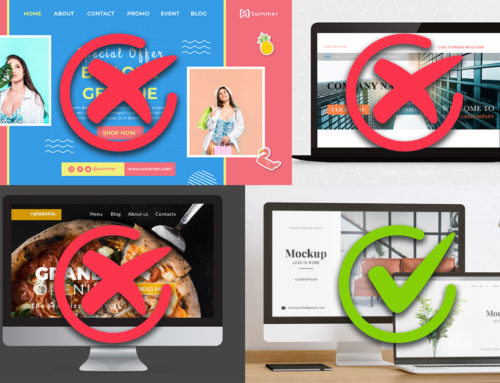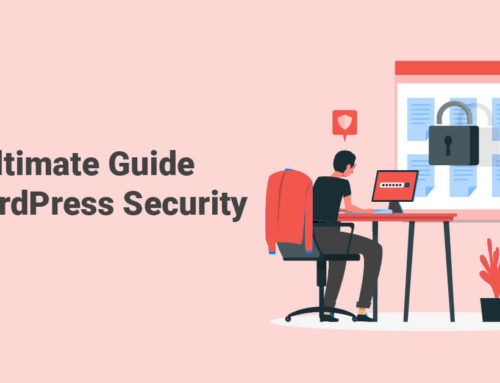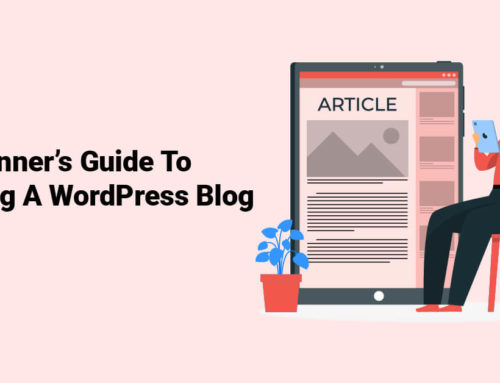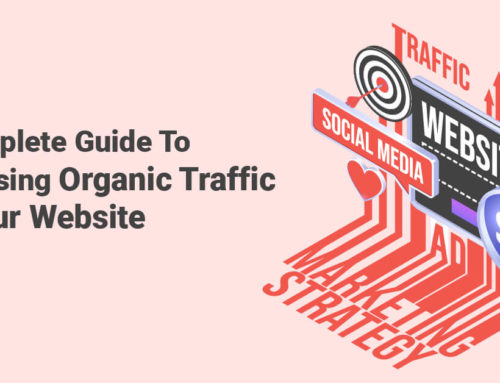
It may be daunting, but building your own website is actually easier than you might think! There are plenty of resources to guide you, whether you want your website to serve one purpose or have more complex features.
You can easily build a website with free website building platforms, how-to websites, YouTube tutorials, books, Pinterest boards, online forums, online classes, college courses, freelance web designers, and web design companies. With so many options to chose from, we’ve compiled some simple resources to help you build your website quickly.
1. Website Building Platforms
WordPress.org
WordPress allows you to create a free website or subscribe to plans that provide extra website support options. It has been my go-to platform for the past 6 years and I LOVE it. WordPress is super user-friendly and there are tons of resources online on how to use it better.
Pros of WordPress:
- Free for basic needs
- Super customizable with designs, templates, extensions, and add-ons
- Accepts most media categories
- You maintain ownership of your website files and can alter your website however you want, whenever you want
Cons of WordPress:
- Since you are in charge of your website, you have to maintain it
- You have to purchase your own domain and web hosting before installing the platform
*Web hosting is where your website’s files are actually stored. “A good way to think about this is if the domain name was the address of your house, then web hosting is the actual house that addresses points to. All websites on the internet, need web hosting.” (Source)
Wix
Wix also has free and paid options for creating websites. On their free plan, you can design as many websites as you want. However, you won’t be able to connect your own domain and will have Wix ads on your sites, unless you have purchased a Premium plan.
Pros of Wix:
- Free for basic needs
- Blank templates for you to start from scratch and plenty of pre-formatted designs and templates
- Drag-and-drop website builder, which tends to be very user-friendly
- Unlike most website builders, you can animate your text
- There is an automatic backup system
Cons of Wix:
- Once you’ve chosen a template, you’re stuck with that one (you can still change the design within that template)
- Wix ads
- Limited customization within the templates.
I recommend reading this article I wrote if you choose to use Wix as your website builder platform to ensure your site loads as fast as possible and avoid making building your site harder later on.
Squarespace
Squarespace is a great all-in-one website builder that you have to pay to use. The benefits warrant the cost though because on this platform you have unlimited hosting and access to Squarespace commerce, which is great for setting up online stores.
“With a lot of practice and fiddling around with the website, it was super easy to use! And worth it if you
are selling a product because all you have to do is buy the website.” Jessica M., Local Business Owner
Pros of Squarespace:
- Plenty of customizable templates and designs
- Their template themes are very compatible with mobile apps
- Can connect your social media accounts
- Offer great technical support
- SSL Security included
Cons of Squarespace:
- Costs Money
- Their themes rely on pictures they include, replacing the picture can disrupt the layout of your website
- All updates are published immediately after saving
- The pages tend to run slow
- Limited customization within the templates.
2. How-To Websites
Website Tool Tester is a website that reviews website builders and provides free e-books on how to build your own website and set up an online store. To get these e-books, you just have to fill out an online form with your name, email, and which kind of website you are building. Then the e-book will be e-mailed to you.
On their website, you can select which kind of website project you would like to start and you will instantly be taken to a step-by-step article on how to create that specific website. They cover small business websites, online stores, photography websites, artsy websites, freelance websites, wedding websites, and restaurant websites.
To direct someone on how to create a generic website, they have an article entitled “How to Set up a Website in 2021: An Updated Beginner’s Guide.”
Site Builder Report is another website that reviews and compares the different website builders that are out there. From articles that directly compare two website builders with each other to articles that address why a specific website builder is best or cheapest, this website will have your website builder questions covered. You can look at different real-life website examples for inspiration and advice on how to design your own website. Each example also includes which website builder was used to create it.
Their “Websites For Dummies: How To Make A Website” article is another great step-by-step resource for someone just starting.
WikiHow is a website that takes advice from researchers and creates step-by-step how-to articles. They also have “expert interviews” and animated step-by-step guides for extra help. WikiHow’s “How to Make a Website” article is split into 4 sections: Designing Your Website, Building Your Website, Test Driving Your Website and Going Live, and Website Considerations. Each section goes step-by-step through that phase of creating a website.
3. YouTube Tutorials
YouTube is a great resource when learning how to do something. They have hundreds of different tutorials on how to make a website.
Here are two quick and easy videos that can help you:
If you run into trouble on any step of the website-building process, YouTube is a fantastic resource. Creators are constantly making new videos to address your questions.
4. Books
Websites are constantly evolving, but most of the fundamental practices have remained the same. There are lots of great books available for creators and designers.
How To Create A Website – A Step By Step Guide By Brock Hamilton
“This book was written specifically for people who are looking to get a great-looking website setup, fast and with a minimum of fuss and complications. It will show you the shortcuts that a lot of professional web designers use in order to produce professional-looking websites in a fraction of the time it would usually take.” (Source)
This book is available on Amazon.com in Kindle Edition for $0.99.
Build a Website for Free By O’Reilly
“You’ll learn how you can use new Web 2.0 technologies to create a site that’s impressive and effective. And here’s the best part: You’ll do it all with software and tools that won’t cost you a dime!” (Source)
O’Reilly is a learning platform that educates subscribers on new technologies. Their book, Build a Website for Free, is available to any O’Reilly subscriber to learn what free tools and resources are available to them.
5. Pinterest Boards
Pinterest is a social media platform that allows individuals to share images and ideas for different projects or events. You can search how to build a website and find thousands of independent “pins” or ideas that can connect you to articles explaining what to do. Another way you can search for ideas is by looking for “boards” that are already compiled folders of “pins.”
Here are a few helpful public Pinterest boards that I found.
This Pinterest board has hundreds of generic ideas on how to build a website.
This Pinterest board has hundreds of ideas on how to build a website using WordPress (the most used website builder).
This Pinterest board has different web design tips to increase the visual appeal and usability of your website.
6. Online Forums
Reddit is the self-proclaimed “Front page of the internet”. It’s full of communities and forums where users can ask questions, brainstorm ideas, and share advice. You’d be surprised at how many different groups are dedicated to website design!
You can use Reddit to post your own question on how to build a website or read through posts where others have asked the same or similar questions. Through this, you can read hundreds of different responses and learn from other’s real experiences.
Quora
“Quora is an American question-and-answer website where questions are asked, answered, followed, and edited by Internet users, either factually or in the form of opinions.” (Source)
Very similar to Reddit, Quora allows you to post your own question on how to build a website or read through posts where others have asked the same or similar questions. This is another great way to learn from real-life experiences. The main difference between Quora and Reddit is that Quora is question-and-answer based whereas Reddit is discussion-based.
Many website-building platforms also offer their own user forums and customer support. You should be able to have an interactive Q&A session with a professional in minutes.
7. Online Classes

Coursera.org
Cocoursera.org is a free online organization that offers free and paid online classes.
They have multiple free and paid courses specifically on building your own website along with other similar courses that emphasize different parts of the website building process.
To catch the absolute basics, they have a free course entitled “How To Create a Website in a Weekend!” Its course description says:
“In this project-centered course, you’ll design, build, and publish a basic website that incorporates text, sound, images, hyperlinks, plug-ins, and social media interactivity… Throughout the course, you’ll engage in collaboration and discussion with other learners through course forums and peer review.” (Source)
Alison
Alison is another website that offers free online classes with plenty of options for learning how to build your own website. A helpful feature of this site is that you can use the filter settings to pick which elements of building a website you would like to learn about.
If you’re starting at the very beginning, they have a free course entitled “How to Create Your First Website” that will teach you all the basics. Its course description says:
“This free online course… will teach you how to use software to create and format a web page, get a domain name set up a hosting account, and make your website available online.” (Source)
8. College Courses

Although this is a more expensive and time-heavy option, many colleges teach website-building courses. You’ll be able to get experience in a classroom setting and will be able to ask questions directly to teachers and other students.
Sessions College
Sessions College is an online school for professional design. They have degree programs, undergraduate certifications, and vocational certifications. Through their programs, you can take multiple different online web design courses that will instruct you on “topics [that] range from HTML and CSS hand-coding to [their] intensive classes on JavaScript/JQuery, and WordPress… With [their] Photoshop courses, your site is looking sweet. Scheduled and self-paced enrollment options are available.” (Source)
Brigham Young University-Idaho
BYU-Idaho is a more affordable four-year university with online options. Through their Pathways Worldwide program, anyone in the world can take their courses. They have multiple majors that allow students to register in web design and web development courses. Some of the courses are offered in one block, meaning that the course will only take half a semester to finish.
Keep an eye out in your local community for classes and correspondent courses that are available. You should be able to find something close by!
9. Freelance Web Designers
Freelance web designers are a great option if you are looking to build a website but don’t know how to do it. Freelance web designers build websites to their client’s specifications. This means that they sketch basic concepts, create draft websites, and make any revisions requested by the client.
Hiring a freelance web designer would make building your website easy, but it does get costly. Most freelance web designers offer up services for a starting price of $199.
Upwork
Upwork is a website where you can find and hire freelance web designers to help you. This website allows you to look at different profiles, hire for a variety of work, and collaborate simply with those who you hire.
10. Professional Web Designers & Companies
WebFX
WebFX is a HUGE tech-enabled digital marketing solutions provider, that creates custom strategies for its clients’ companies based on their needs and goals. They have over 300 employees in digital marketing alone that have designed over 1200 websites.
Alyaman Alhayek Design
This blog is actually part of my website for my business, where I provide web design and branding that is proven to grow your business. I help YOU get more clients with websites that get traffic & convert it.
Proven results, not just designs. See for yourself by talking to me. Click here or on the ‘Let’s Talk’ in the top-right menu.






Leave A Comment
You must be logged in to post a comment.